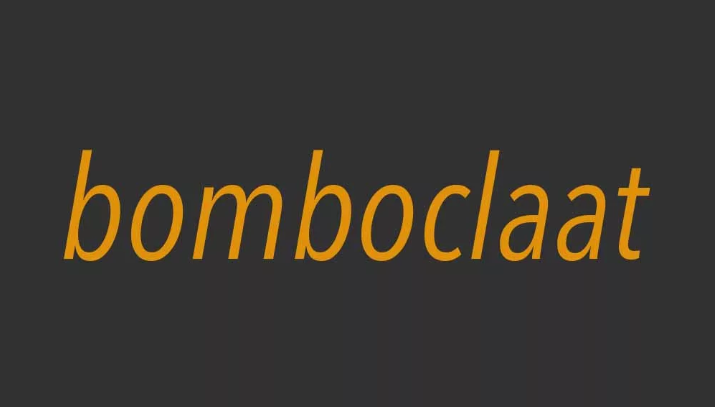The word “Bomboclaat” has gained global recognition in recent years, primarily due to its prominence in memes and social media trends. However, its origins are deeply rooted in Jamaican Patois, and its usage is not without cultural and social implications. This article delves into whether Is Saying Bomboclaat Offensive, providing a cultural perspective to help readers better understand the word’s meaning and context.
Understanding the Origin of “Bomboclaat”
To grasp the implications of using “Bomboclaat,” it is essential to understand its origins. The word is a term from Jamaican Patois, a Creole language spoken predominantly in Jamaica. It is derived from “bumboclaat,” which directly translates to “bum cloth” or “toilet cloth.” Historically, it refers to sanitary cloths used for personal hygiene, but in modern Jamaican culture, it has taken on a more profane connotation.
In its native context, “Is Saying Bomboclaat Offensive” it is often used as an expletive or an expression of strong emotion, whether anger, surprise, or excitement. Similar to how curse words are used in other languages, their intensity depends on the tone, context, and intent behind their use.
Cultural Significance of “Bomboclaat”
In Jamaican culture, words like “Bomboclaat” carry weight beyond their literal meanings. They are deeply ingrained in the way people express themselves, often reflecting the rawness and vibrancy of Jamaican speech. While it is a common word in Jamaica, it is not used casually or without understanding its potential to offend.
Jamaican Patois is more than a language; it is a symbol of identity, resistance, and pride for the Jamaican people. Words like “Bomboclaat” are part of this linguistic tapestry, embodying the struggles and spirit of a culture that has faced colonialism, oppression, and marginalization. When such words are taken out of context or used without understanding, it can feel disrespectful to those who see them as an integral part of their heritage.
Why “Bomboclaat” Became a Social Media Trend
The word “Bomboclaat” gained global attention through its use in memes and online trends. Around 2019, it became popular on Twitter as a meme format where users paired it with images or captions to create humorous or relatable content. For many non-Jamaicans, “Bomboclaat” was just another quirky, foreign word that added flair to their posts.
This widespread adoption, however, raised questions about cultural appropriation and the potential disrespect of using a word with deep cultural roots as a mere internet joke. For Jamaicans, seeing such an integral part of their language being used out of context—often by people who have no idea of its meaning—can be frustrating and offensive.
Is Saying Bomboclaat Offensive?
Whether saying “Bomboclaat” is offensive depends largely on the context and the person using it. Here are some factors to consider:
- Intent and Understanding: If someone uses the word casually without knowing its meaning or cultural significance, it can come across as ignorant or disrespectful. On the other hand, someone who understands its context and uses it appropriately may not offend.
- Audience: Saying “Bomboclaat” around Jamaicans who understand its weight and significance can provoke strong reactions, especially if it is used flippantly. However, in non-Jamaican settings, the word may be perceived as just another slang term, though this does not diminish its cultural importance.
- Appropriation vs. Appreciation: Using “Bomboclaat” without regard for its origins or cultural weight can be seen as cultural appropriation. Appreciation involves learning about the culture, respecting its nuances, and using words like “Bomboclaat” with sensitivity and awareness.
The Role of Social Media in Cultural Misunderstanding
Social media has blurred the lines between cultural appreciation and appropriation. Platforms like Twitter and TikTok often amplify trends without providing the necessary context. This has resulted in words like “Bomboclaat” being stripped of their cultural significance and reduced to mere tools for entertainment.
While social media can promote cultural exchange, it also risks trivializing and commodifying aspects of culture. For Jamaicans, seeing “Bomboclaat” trend globally may evoke mixed feelings—pride in their language’s influence but also concern over its misuse.
How to Use “Bomboclaat” Respectfully
If you wish to use the word “Bomboclaat,” it is crucial to do so respectfully and thoughtfully. Here are some tips:
- Educate Yourself: Learn about Jamaican culture and the meaning of “Bomboclaat” before using it. Understanding its context shows respect for the culture it originates from.
- Be Mindful of Your Audience: If you are not Jamaican, consider how your use of “Bomboclaat” might be perceived by those who are. Avoid using it in a way that trivializes or disrespects its cultural significance.
- Avoid Casual Use: Treat “Bomboclaat” as you would any strong expletive. Avoid using it casually or as a joke, especially if you are unfamiliar with its deeper meanings.
- Respect Cultural Boundaries: Not every word or phrase is meant to be adopted by everyone. Sometimes, the most respectful choice is to appreciate a culture’s uniqueness without trying to incorporate it into your vocabulary.
Conclusion
The question of whether saying Is Saying Bomboclaat Offensive boils down to context, intent, and cultural awareness. While the word has transcended its Jamaican roots to become a global phenomenon, it remains a deeply significant part of the Jamaican language and identity. Using it without understanding its meaning or respecting its cultural weight can be offensive to many Jamaicans.
As global communication continues to expand, it is more important than ever to approach other cultures with respect and sensitivity. By educating ourselves and being mindful of our words, we can engage in meaningful cultural exchange without perpetuating misunderstanding or disrespect. Ultimately, “Bomboclaat” serves as a reminder of the power of language and the importance of honoring its roots.

